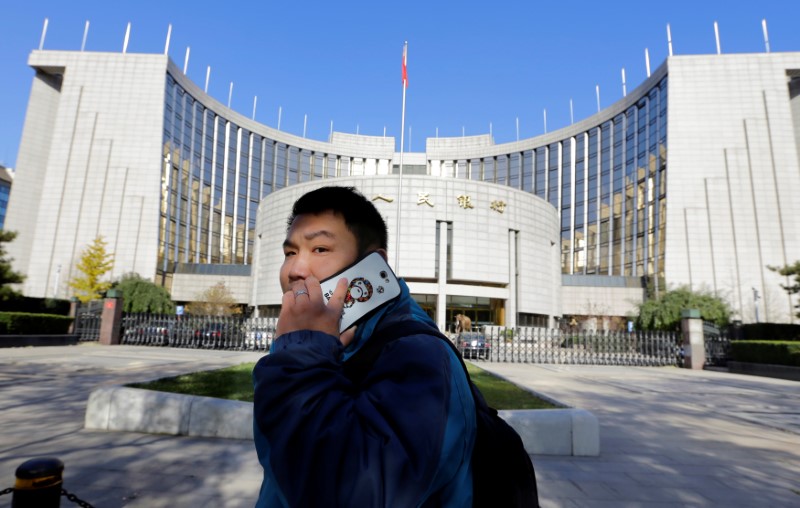(Bloomberg) --
China faces the threat of foreign outflows from the second half of the year as rising borrowing costs in the U.S. drives investors out of emerging markets, according to a former adviser to China’s central bank.
The potential for a reversal in capital inflows and a possible wave of bond defaults are two of the biggest risks facing the economy this year, Li Daokui, a former member of the People’s Bank of China’s monetary policy committee, said in an interview. The instability is being fueled by the U.S.’s $1.9 trillion pandemic relief, which will benefit China by boosting exports, but also add to risks, he said.
“It’s just like drinking alcohol: you feel comfortable, but people worry about the after-effect,” he said. “When the stimulus is gone and the U.S. is back to normal, the aftermath will be very damaging to emerging market economies.”
The U.S. stimulus is boosting the outlook for growth and inflation, driving up bond yields and prompting investors to sell riskier, emerging market assets. That’s a worry for global policy makers as they brace for more volatility in their currencies and financial markets.
With a rise in nominal interest rates in the U.S., “it’s likely for the second half of this year to see a capital outflow” from China, Li said. “A lot of the investors are moving out of emerging market economies. China has emerging market characteristics, even though for the time being it is perceived as a stable market because of its relatively better performance in fighting Covid-19,” he said.
Hot Money Flows Become a Hot Issue: What to Watch in China
Li is currently director of The Academic Center for Chinese Economic Practice and Thinking at Tsinghua University in Beijing.
‘Hot Money’
China has seen a flood of capital inflows this year, fueled by the economy’s strong recovery and relatively higher interest rates compared to advanced nations. Yi Huiman, the head of China’s securities regulator, warned this weekend about the risks of “hot money” flows, which he said could endanger the healthy development of markets and should be strictly controlled.
Speaking at the same event, newly appointed central bank adviser Wang Yiming said a stronger-than-expected U.S. rebound could lead to capital outflows from emerging markets with the potential to create “financial market turmoil.” A commentary in the influential China Securities Journal on Tuesday said that outflow risks were “controllable.”
Li said authorities should be cautious about easing capital controls to allow more outflows, saying the central bank can ease pressure on the currency by allowing the yuan to fluctuate in a wider range.
“This year may be a bumpy year in terms of capital outflows,” he said. “The central bank may increase its range of foreign exchange market trading in order to avoid accumulation of pressure on one side or the other.”
Other key highlights from Li’s interview:
Bond Defaults
The central bank will need to watch out for risks of rising bond defaults causing market panic, as happened at the end of last year when several large state-owned companies missed debt payments.
“The default of Chinese bonds are likely to happen at a larger scale than last year,” he said. “The risk is whether the defaults become contagious or not.”
The risk of contagion is enhanced in China as companies often guarantee each other’s debt.
“This is an underlying problem. The banking regulatory commission has to inject liquidity in order for this contagion to stop,” Li said, adding: “I would suggest the central bank works with banking and insurance regulators to work out bad loans without contagion.”
Overseas Lending
Li is also a former chief economist for the New Development Bank, a lender set up by the so-called BRICS nations -- China, Brazil, India, Russia and South Africa. He said Chinese banks would likely be cautious about lending to developing countries following a wave of debt restructuring in emerging markets due to the pandemic.
“I expect that we will see a period of consolidation,” he said. “I believe that there will be a few more years before we see a wave of investment in emerging economies from China.”
(Updates with comments from central bank adviser and state media report.)
©2021 Bloomberg L.P.
